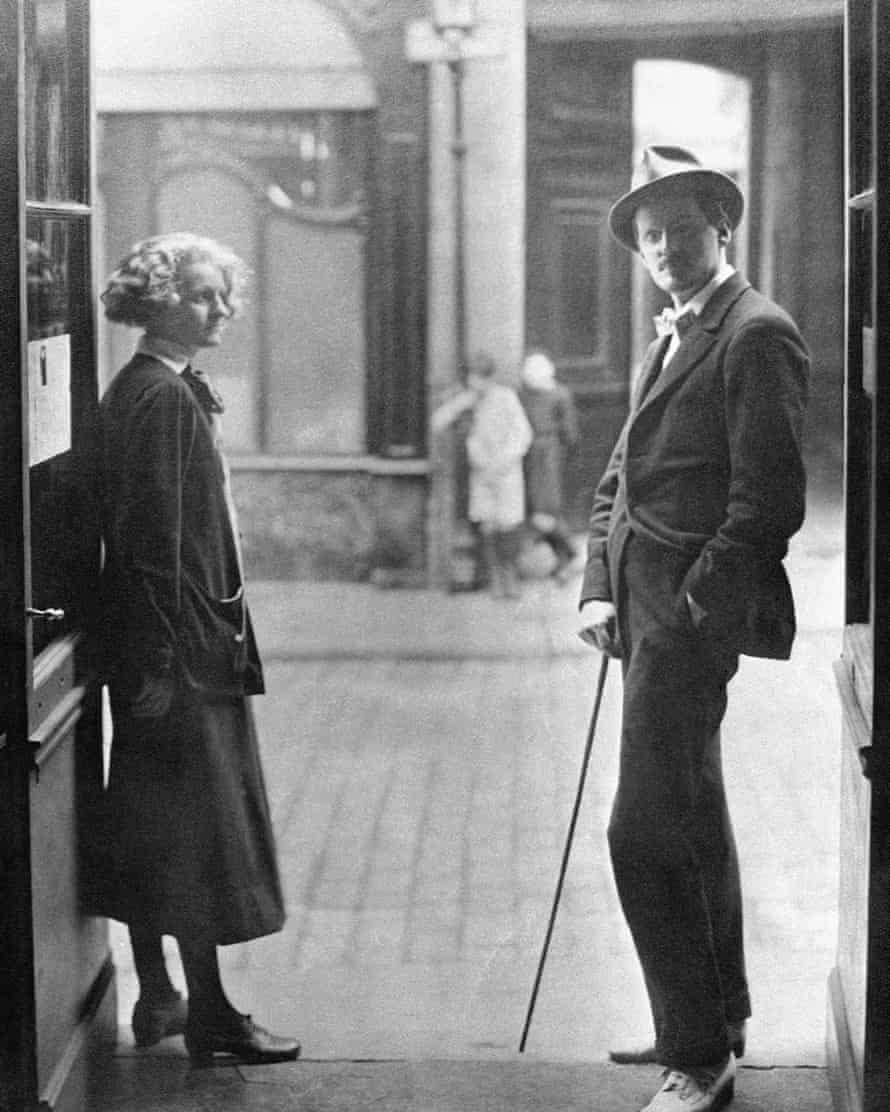 |
| James Joyce |
Where to start with: James Joyce
Always wanted to tackle the great Irish writer but not sure Ulysses is for you? This handy primer may just help you find a way in
Justin Jordan
Friday 18 February 2022
The books of James Joyce, along with Middlemarch and War and Peace, were among the titles that many vowed to read when the UK was plunged into its first coronavirus lockdown. Almost two years later, we now know that most of us filled all that time indoors with Netflix and Zoom quizzes rather than catching up on lengthy classics (apart from the author David Mitchell, who did read Ulysses in 2020). But with this month marking the centenary of Ulysses and 140 years since Joyce’s birth, perhaps now really is the time to familiarise or re-familiarise yourself with the influential modernist writer.
The entry point
Dubliners, a collection of frank, direct short stories that find moments of epiphany amid ordinary Irish life, was published in 1914 after nearly a decade of setbacks and censorship. The Dead, the story of a Christmas feast, is its finale and crowning glory. Complete with singsongs, political arguments and annoying drunken guests, its bittersweet apprehension of the fragility of celebration amid the passing of time has never been surpassed.

“Once upon a time and a very good time it was there was a moocow coming down along the road …” In the opening pages of A Portrait of the Artist as a Young Man, a consciousness flexes and expands before our eyes. The language develops along with the young Stephen Dedalus as he begins to process his surroundings, from the mysteries of adult relationships to the brutal hierarchies of school. Joyce’s groundbreaking first novel goes on to follow his fictional alter ego as he grapples with the constrictions of Catholicism, family and social convention, and sets in motion his overwhelming need to escape his homeland and create something new.
If you only read one
“Apart from everything that you could possibly imagine, nothing much happens in Ulysses,” wrote Anne Enright in her recent celebration of its centenary. A young man and an older one wander Dublin, their paths repeatedly crossing, and a woman lies in bed thinking, on 16 June 1904. Each section pushes at least one new style of telling to the limits, as the narration flits from mind to mind. It is still revolutionary today, as well as being knotty, funny, humane and endlessly rewarding.
If you’re in a rush
“I prefer the poetry” would be a madly contrarian position, but the slim volumes Chamber Music and Pomes Penyeach will give you snatches of Joyce in seconds. They provide a fascinating angle on his literary development and showcase his musicality, moving from traditional romantic swoons to a fragile, sincere beauty. Pomes Penyeach was my own gateway to Joyce, after my dad, never usually a spontaneous present giver, left a copy in my room when I was 12. The delicate fragments sparked my interest in the oversized paperback of Ulysses that loomed over the Len Deightons and Le Carrés on his bookshelf. Now we always have something to talk about.
The one to give a miss
Stephen Hero, an earlier, more traditionally realistic treatment of the material that became Portrait of the Artist, was rescued by Joyce’s sister after he threw it on the fire. As an unfinished novel, it has an unimprovable last line – “He remained behind gazing into the canal near the feet of the body, looking at a fragment of paper on which was …” – but today it’s one for the scholars.
The one to cheat a bit with
Joyce teased that his “big long wide high deep dense prosework” Finnegans Wake, 17 years in the writing, would “keep the critics busy for 300 years”. If you read the final words, “A way a lone a last a loved a long the”, then turn back to page one – “rivverrun, past Eve and Adam’s, from swerve of shore to bend of bay …” – you are swept around again. It’s a Freudian family psychodrama crossed with the fall of man, taking in the history of Ireland, myths, legends, jokes, shame, desire, sin, cycles of time, death, chaos and resurrection.
Ulysses tracked a single day; Finnegans Wake, a single night. Governed by dream logic, it’s written in a dream language built out of multilingual puns, compounds and nonsense words: more than 600 dense pages of the stuff. Joyce said you should simply read aloud if you get stuck, but if that doesn’t work you could try A Shorter Finnegans Wake, abridged by Joyce superfan Anthony Burgess. Burgess’s friendly interjections, illuminating what’s going on, give the reader the confidence to wander alone and to stir in personal preoccupations and associations. For more than any other book, perhaps, Finnegans Wake is created afresh each time – as Joyce put it: “I give readers the opportunity to supplement what they read with their own imagination.” It’s always a Work in Progress, to use the original title; we all dream the Wake.


No comments:
Post a Comment